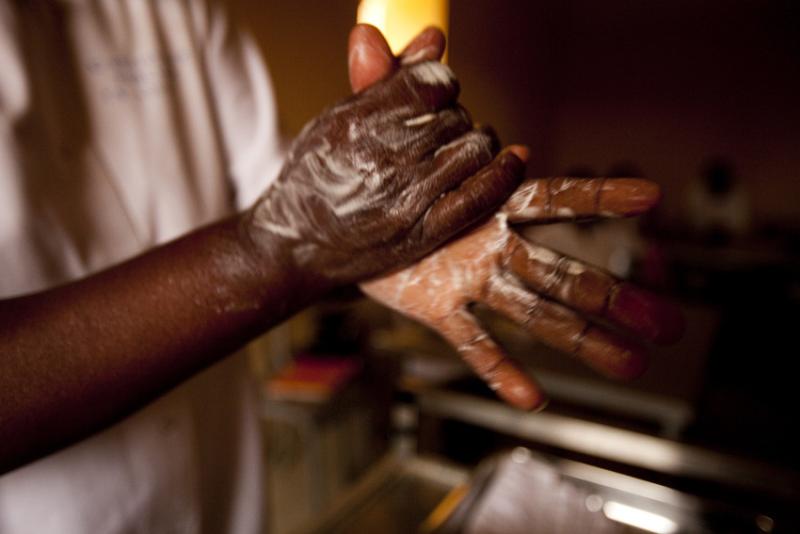Where We Work
See our interactive map


Today is World Hand Washing Day. Did you know the CDC recommends that you rub your hands together for 20 seconds while washing to effectively remove as many germs as possible? I encourage you to use a stopwatch like I did and discover what a shoddy job you’ve likely been doing.
We all know hand washing is important. We wash before we eat, after using the bathroom, and after we cough. We teach our children to wash their hands. But once in a while we forget or grab a meal on the go and don’t worry about cleaning up first. What’s the worst that could happen, right?
Well, it depends on where you live.
Diarrheal disease and respiratory tract infections are the two biggest killers of children in the developing world. According to studies cited by the Global Public-Private Partnership for Handwashing, cleaning your hands with soap can cut the risk of diarrhea by 30–50% and the risk of respiratory tract infections by 21–45%.
The World Health Organization (WHO) estimates that diarrhea kills one child every 30 seconds.In some communities, especially those without access to health care, the worst thing that can happen when you don’t wash your hands is death.
But for many families around the world, the daily chore of retrieving clean water is arduous. Nearly 1 billion people don’t have access to clean water, and more than 2.5 billion don’t have access to adequate sanitation facilities. Every day, 200 million work hours are consumed by women collecting water for their families.i For those families without reliable water supplies or suitable alternatives such as alcohol-based rubs, the simple lifesaving habit of adequate hand washing is out of reach.
In health care settings in all countries, hand washing can be the difference between life and death. You’ve probably seen (if not in life, then at least on TV) surgeons and nurses scrubbing their hands before they enter an operating room. But the operating room isn’t the only place where patients are at risk for infection. It can happen wherever health care is provided. Patients in intensive care and newborns are particularly susceptible.ii
The health care-associated infection—that is, when a patient gets an infection while receiving medical care—is the most common health care complication in the world. No one knows just how many patients die every year because of it, but the number is likely in the hundreds of thousands. Many of these infections are spread by the hands of health workers.ii
The WHO recommends health workers use alcohol-based rubs to clean their hands for most routine clinical situations. Health workers should scrub for 20–30 seconds with the rubs, or for 40–60 seconds if using soap and water. The WHO also suggests five moments for hand hygiene: before touching a patient, before any procedure that requires a sterile environment, after risk of being exposed to a patient’s body fluid, after touching a patient, and after touching anything in a patient’s surroundings.
That’s a lot of hand washing. And it’s the minimum.
Intense workloads, inconvenient hand hygiene stations, and skin irritation are some of the reasons health workers may fail to wash their hands even in health facilities that have lots of resources. But what about the many health facilities that don’t have adequate sanitation facilities, reliable running water, or consistent supplies of alcohol rubs? According to the 2010 Kenya Service Provision Assessment survey, only 46% of Kenyan health facilities have running water year-round. In Namibia, that number is only 57%.
Some of the most cost-effective ways to prevent illness and death are to ensure health facilities have adequate sanitation facilities and supplies, and to train health workers in hand-hygiene practices.
The simple act of hand washing could save more lives than any single vaccine.iii Health workers want their patients to be safe, and health workers deserve to have the facilities and supplies necessary to make sure that the only thing they’re giving to patients with their touch is care.
ii. World Health Organization. (2011). Report on the Burden of Endemic Health Care-Associated Infection Worldwide: A Systematic Review of the Literature.
iii. The Global Public-Private Partnership for Handwashing http://globalhandwashing.org/why
Get the latest updates from the blog and eNews




